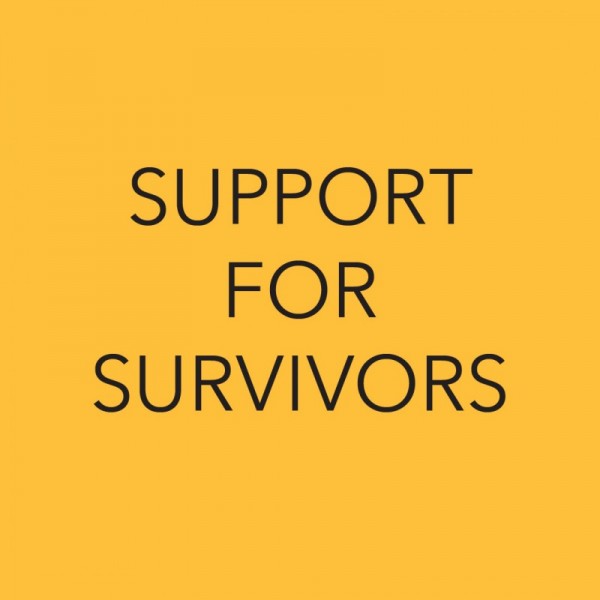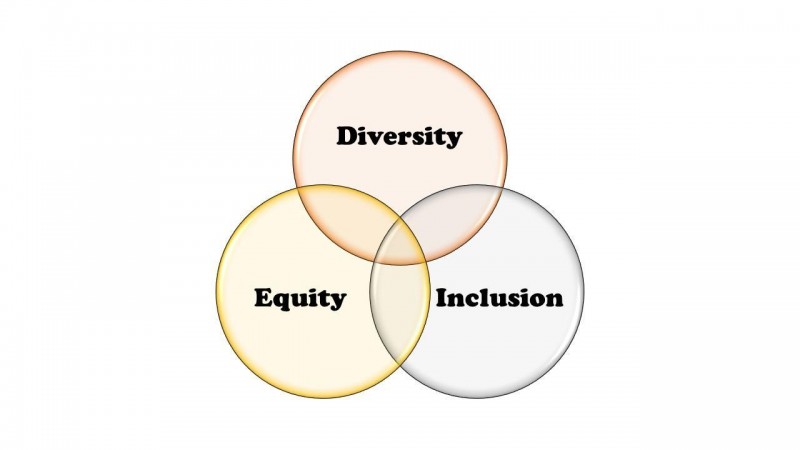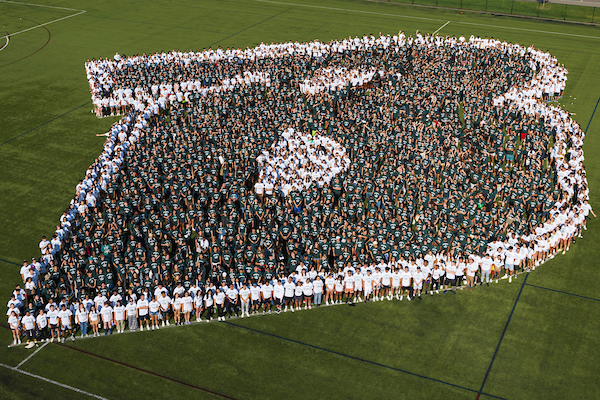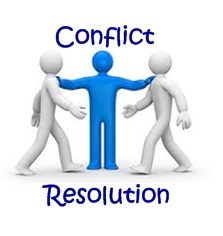34 Health and Wellness Resources at Binghamton University
Health, whether physical or mental, matters. Make sure to prioritize your well-being and use these resources when needed. There are so many support systems and resources available, that it can be overwhelming to figure out where to go and/or who to talk with. If you or a friend are looking for help with any issue related to health or wellness, or you are simply curious about what the University offers to help students with mental health, this complete guide of resources for students on campus should help you determine where to turn.
B-Healthy, Healthy Campus Initiative
The goal of Binghamton University’s Healthy Campus Initiative (HCI) is to create an environment and identity that encourages and supports healthy living for all in our community. This is done through collaborations with internal and external partners, programming, resource awareness and initiatives covering a broad range of topics including emotional well-being, alcohol, tobacco and other drugs, and other general health topics.
Binghamton Support Network
Need help finding help? The Binghamton Support Network is designed to help you discover resources on and off campus compiled to support your health, success and well-being.
Mental Health Resources

University Counseling Center (UCC)
Students can make appointments with the UCC for in-person and online counseling sessions. The UCC offers a range of services, including individual counseling, group sessions, workshops, referrals and more. If a student is in need of immediate assistance, the UCC provides same-day urgent appointments and an after-hours crisis line for nights, weekends and holidays.
Let’s Talk
Students can also seek informal counseling support through Let’s Talk, a program offered by the UCC in collaboration with the Multicultural Resource Center, the Q Center, the Educational Opportunity Program and Student Support Services. Let’s Talk is a nationally recognized, confidential service to provide people with mental health consultations. At Binghamton, Let’s Talk is hosted in spaces that students regularly utilize and allows students to drop in, without an appointment, for confidential conversations to talk out an issue, get feedback, and see what it is like to talk to a counseling professional.
CARE Team
The Consultation, Advocacy, Referral and Education (CARE) team supports students’ decisions, assists students in determining the best course of action and identifying available resources. The CARE Team accepts same-day appointments and allows others to share when they are concerned about a student.
Healthy Campus Peer Agents
Peer Agents promote greater well-being by working with peers to increase awareness of wellness resources on campus, provide support, and encourage responsible decision-making. Peer Agents are role models and liaisons who connect their peers to health and wellness resources on and off campus. Peer Agents focus on the following wellness topics: Alcohol, Tobacco & Other Drugs; General Education; and Emotional Wellness.
Support Empathy Empowerment Kindness (SEEK)
SEEK is a student-run helpline service where students can talk through an issue or anything else with a peer. The helpline, previously known as High Hopes, is open from 8-11 p.m. any night the dorms are open. Students can talk about anything they want with the trained students, such as stress, relationships and mental health.
Binghamton University Psychological Clinic
Doctoral students in the Psychology Department offer psychotherapy and behavior therapy. The Binghamton University Psychological Clinic is mostly a short-term service with individual assessments, group therapy and more. Full-time faculty and clinical psychologists work with the doctoral students to help train them while providing care.
Resources for Survivors

Interpersonal Violence Prevention
Students who are victims of sexual assault can seek support and help through the Interpersonal Violence Program (IVP). Friends, family members, students and staff can be advocates. The advocates listen to and support the victim, refer them to services, offer resources, accompany victims to police stations and courts, and more. One of their past events included a clothesline project to protest the violence against women.
The VARCC
The Violence, Abuse and Rape Crisis Center is an on-campus, private service for anyone to report sexual assault incidents; it also provides support to victims. The VARCC offers advocates, a deputy Title IX coordinator and specialized counselors. They also offer to work closely with Residential Life, the University Police Department, a New York State Investigator and more organizations.
Title IX Coordinator
Students can file anonymous reports or can bring complaints and questions to the Title IX Coordinator on campus. Sexual assault and harassment is a problem at colleges nationwide, and Binghamton University is committed to assisting students in every way possible to report incidents and receive support.
Physical Health Services

Decker Student Health Services
Whether you have a cold, need a flu shot, your throat is sore, or you have any other physical health concern, Decker Student Health Services (Decker) has you covered. The mission of the Decker Student Health Services Center is to promote and support student wellness through education, prevention and treatment in a caring atmosphere that respects the unique qualities of each individual. All students are welcome and can make appointments for free. The regular hours of operation are 8 a.m.-4:45 p.m. Monday through Friday.
Harpur’s Ferry
Students with a health-related emergency for themselves or another student can call Harpur’s Ferry at 607-777-3333 for a student-run voluntary ambulance service. Its 24/7 care and services are provided free of charge and entirely confidential, which means there is no reason to be afraid to call for help for someone who drank too much or has overdosed.
Free Menstrual Care Products Pilot Program
This is a relatively new program that provides free menstrual care products to students struggling financially. Students can order the products they need online or at one of the organization’s on-campus locations. The Free Menstrual Care Products Pilot Program is currently installing menstrual products in bathrooms all across campus for students to use for free.
Campus Recreational Services
Campus Recreational Services provides a safe and healthy environment for recreational activities. There are five distinct programs (Club Sports, Intramural Sports, Wellness Services, Outdoor Pursuits and Open Recreation) designed to encourage positive lifestyle choices and promote lifelong learning through wellness and physical activities. Campus Recreational Services fosters social interaction, personal growth and the opportunity to develop leadership skills.
Bikeshare
Want to ride a bike without having to bring your own to campus? Binghamton University Transportation and Parking Services has partnered with Koloni to bring a bikeshare program to campus.
Nutrition Resources

Food Pantry
The Binghamton University Food Pantry is a place with free food, sanitary items and other essentials. Any students who are facing hard times financially or due to other reasons can come for anything they need, with no questions asked. Food insecurity is a devastating problem and the University wants to help combat it by offering this service, which anyone can support by supplying items or monetary donations.
Eating Awareness Committee (EAC)
Students and staff at the University created the Eating Awareness Committee to help spread awareness about eating disorders. The committee’s goal is to educate others and create a more informed student body. Learning about eating disorders can help people support their friends and be more open to discuss it. The EAC can also provide referrals to services and treatments for students struggling.
Dietitians On Campus
Students, faculty and staff can discuss nutrition and dietary concerns with on-campus dietitians for free. Whether you are struggling with disordered eating or need help with nutrition, the University’s dietitians can help you achieve your goals.
Diversity, Inclusivity and Equity

Q Center
The Q Center offers support, education, advocacy and initiatives for students, faculty and staff identifying with the LGBTQ+ community and allies who are committed to learning more about LGBTQ+ issues. The Q Center offers a multipurpose study space, a living room, a small library of LGBTQ+ related books, and a newly expanded Gender Bender Walk-in Closet where students identifying as queer, transgender, and/or gender non-conforming can conveniently donate clothes and obtain new clothes that affirm their identity. The Q Center staff sponsor and facilitate a diverse range of educational initiatives on campus including our Active Ally training series, OUTober Pride Month, Transgender Awareness Week, Transgender Week of Liberation and the Lavender Graduation Ceremony.
Harriet Tubman Center
This new resource was created to combat racial injustice and enhance education about Black, Indigeneous and People of Color (BIPOC). The Harriet Tubman Center recently celebrated the grand opening of its physical office on campus. The center has written 10 recommendations for the University based on confidential listening sessions from students and staff. With the help of President Harvey Stenger, the Harriet Tubman Center plans to implement new general education requirements, enhance diversity and more to build a more equitable campus.
Multicultural Resource Center (MRC)
The perfect combination of fun, support, educational and volunteer opportunities can be found with the MRC. The MRC Lounge, located in LS-G500, is a great space for students of different backgrounds to hang out, study and meet other students. The MRC hosts various events, workshops and initiatives to improve the understanding of cultural diversity and support the growth of BIPOC students, such as the Pathways to Inclusive Leadership program, New Student of Color Mentor Program and MLK Day of Service. Beyond its events and initiatives, the MRC has additional resources, including the resource room, resource library, the multifaith meditation and prayer room, and the Translation and Interpretation Program (TIP). The MRC also assists students in connecting with over 90 cultural student organizations to find their home away from home.
Binghamton University Interfaith Council (BUIC)
The Binghamton University Interfaith Council (BUIC) builds appreciation for different faiths, starts discussions between religions and connects students to resources and faith communities. The BUIC also has frequent office hours for any students who wish to talk with their members.
Residential Life DEEP
Residential Life’s Diversity, Empowerment, Education and Program (DEEP) assists students with problems relating to residential life and enhances intersectional equity. Student interns work with students and staff to make every student feel welcome and help connect them with necessary resources.
Services for Students with Disabilities
Binghamton University strives to foster an environment where students have all the resources they need for academic success. Services for Students with Disabilities has resources for temporary injuries, helps with testing accommodations, provides notetaking services and more. The University is also consistently working on creating an accessible and inclusive campus. Any students who need an advocate or service provider can go to this resource.
Emergency Fund
The Binghamton University Emergency Fund grant is an award of financial assistance for currently enrolled Binghamton University students experiencing a financial need that is impacting their ability to progress academically and is affecting their overall well-being and/or safety. Emergency grants are awarded on a case-by-case basis and are not intended to provide relief to a student’s recurring expenses.
New Students

Transfer Student Services
After getting to know friends and becoming familiar with campus life at another school, transfer students are thrown into an entirely new environment, which can be overwhelming. Transfer Student Services helps ease this transition and supports anyone transferring to Binghamton with mentoring and guidance from fellow transfer students and staff.
International Student and Scholar Services (ISSS)
Entering a big university or moving to a new country can be anxiety-inducing. It’s safe to say combining those two would scare or worry anyone, and it’s something that international students face when they come to Binghamton. International Student and Scholar Services provides services to support this transition. ISSS has advising hours and hosts events to help international students connect with one another and get involved.
Emerging Leaders Program (ELP)
Freshmen and transfer students can earn a certificate during the fall semester with the Emerging Leaders Program. Through ELP, students can gain advice and build friendships with student mentors. The ELP helps new students make connections with others and the local community in order to create foundations for happiness and success at college.
New Student of Color Mentor Program
Binghamton University wants new students of color to feel welcomed and supported during their time on campus and beyond. The New Student of Color Mentor Program works to ease the adjustment for first-year students of color. The program connects underrepresented minority students with faculty and staff of color with similar hobbies or academic interests.
Pegasus First Year Experience
The Pegasus First Year Experience is open to all LGBTQ+ first year undergraduate students and allies. The Pegasus initiative is designed to support students’ transition to college and educate the community on current issues and needs that are specific to LGBTQ+ students. Pegasus has three components: a dynamic fall orientation program called Rainbow Welcome, the FYE UNIV 101 Seminar Course,and the Pegasus Programming Board. Incoming students are welcome to get involved in all three components or choose as they’re able.
Pathways to Inclusive Leadership Program
Pathways to Inclusive Leadership (Pathways) is a new program open to students at all academic levels. Pathways helps students with their leadership development, through a comprehensive and inclusive approach focused on diversity, career readiness and civic engagement.
Conflict Solving Solutions

Office of the Ombudsman
Students can go to the Office of the Ombudsman for anonymous conflict resolution. It is a safe space to voice your concerns, seek neutral advice and receive mediation. You can make an appointment for help if you have an issue with another student or a professor without any records identifying students, so there are no consequences to worry about.
Residential Life MSW Interns
Issues with housing, roommates, and wellness can be addressed through Residential Life case management services. Interns in the Master’s of Social Work program help undergraduates in adjusting to college, resolving conflicts, and finding resources on or off-campus to help with mental health issues or addiction.
Beyond the services provided by the University, there is a lifeline for students to use. 988 is always available 24/7 to offer confidential and free support to anyone who needs it. They provide support, referrals to other resources, follow up services, and safety planning with visitors. They can be reached by phone or by text simply by dialing or messaging “988”, or through their online chat on their website at 988lifeline.org. They offer services in English, Spanish by texting 988 and typing “AYUDA”, and they recently added a wonderful video chat option for those who use ASL which can be reached by dialing 1-800-273-TALK (8255) from any video chat enabled phone. There are chat lines available for general support, LGBTQ+ Youth under 25, and Veterans. There are also many clubs and organizations for students to join and find support from as well.
There are plenty of factors that go into helping students reach their full potential, but success is nearly impossible without ensuring their happiness, health and wellness. Binghamton University recognizes this need and strives to continuously improve and advance their resources and services to support students mentally, academically and socially.
Isabella Cavallo ‘22 majored in literature & rhetoric at Binghamton University. She spent her free time writing articles for Pipe Dream and Her Campus. When she’s not writing, Bella is typically thrifting, playing piano, painting or forcing her friends to a game of chess.
Shawn Ammann is an intern for the Office of Media and Public Relations, and a junior majoring in English. He is undecided on a career path, but is interested in screenwriting and sportswriting. He enjoys playing basketball, running, watching movies and writing.
Have questions, comments or concerns about the blog? Email us at social@binghamton.edu.